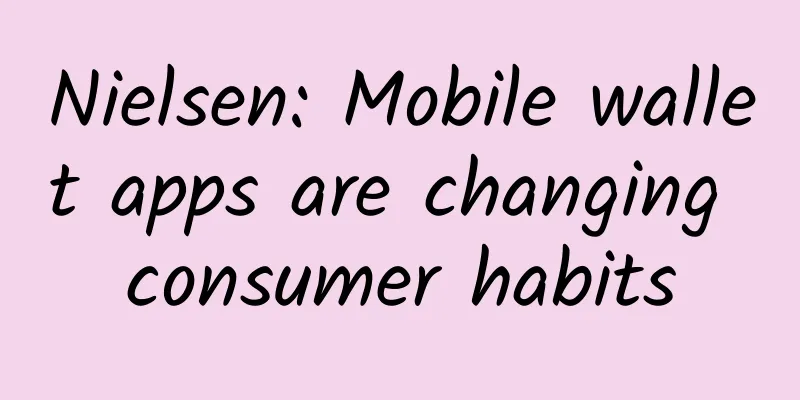Nielsen: Mobile wallet apps are changing consumer habits

|
199IT original compilation In an era of continuous development, mobile payment brings more and more convenience to consumers, while also bringing opportunities to marketers. Nielsen President Randall Beard hosted the Nielsen Consumer 360 Conference in Washington, D.C., to discuss the current mobile payments landscape and the opportunities it presents to marketers. Attendees shared their perspectives on the future of mobile wallet payments and the current user landscape. A lot of time was spent discussing the challenges facing developing markets, as these markets have a large number of users. “Mobile payments are definitely going to become a significant payment method,” said MasterCard’s Jankowski. “One of the barriers to scale is figuring out what the standards are. I think that’s a fundamental issue that we need to overcome, but there’s no doubt that mobile payments adoption is going to increase.” Panelists acknowledged that mobile wallet adoption in emerging markets has caught up with the rest of the world, with Demand Institute’s Keely saying, “If you don’t know what’s happening in emerging markets, you should know because this is what’s happening in developing markets, too.” In terms of opportunities, IBM's Jimenez said merchant-based applications have seen significant growth, although many consumer applications have seen lower usage. "I'm very concerned about mobile wallets in this area," he said. "I know people have a lot of apps on their phones, but the data shows that usage of these applications is growing." Mobile wallets accounted for 18% of apps accessed by U.S. smartphone users in the first quarter of 2015. Mobile wallet users also have more sophisticated financial habits, which provides excellent opportunities for marketers, and consumers who use mobile payments often have investment accounts. Unlock marketing potential According to MasterCard's Jankowski, the key to unlocking mobile wallets is hidden in the data. "The more data we have on peer-to-peer purchases, the more marketing opportunities we have," he said. "The closer we are to the information, the more we can do with less effort." IBM's Jimenez added: "Cash is more expensive and less secure, and from a merchant's perspective, they need to know their customers. Mobile wallets help to complete this process." Mobile payments are poised to take off, with about 6 in 10 Americans predicting that smartphone tap-to-pay will eventually replace payment cards (63%) and cash transactions (57%), according to a recent Harris Poll survey. In fact, 3 in 10 Americans believe that smartphone tap-to-pay will replace credit and debit cards in the next five years, and about a quarter of Americans believe that cash transactions will also be replaced in five years. Compiled from: Nielsen Translator: Sun Ying |
<<: Are roasted oranges effective in treating coughs?
>>: BatteryBox: Survey shows Chrome is the killer of MacBook battery life
Recommend
When is the best time for women to soak their feet?
Although foot soaking is a very simple activity, ...
National Information Center: In 2021, China's online food delivery revenue accounted for 21.4% of the total catering industry revenue
In the context of the COVID-19 pandemic, takeaway...
What should pregnant women do if their stomach bloates after eating?
After pregnancy, pregnant women still need to pay...
Digestive dysfunction after pregnancy
After a woman becomes pregnant, her progesterone ...
Can mold be passed on to children?
Many women develop gynecological diseases during ...
More than 1.5 billion people worldwide have hearing loss! These common behaviors are very "damaging" to your hearing
March 3 is National Ear Care Day. How are your ea...
Oliguria during lactation
The body of a breastfeeding woman is quite specia...
What is the cause of the enlarged uterus?
We all know that the embryo develops and grows in...
Will the belly be hard during pregnancy?
Expectant mothers are particularly concerned abou...
What are the dangers of hypertrophic cardiomyopathy? What is the difference between obstructive and non-obstructive cardiomyopathy?
Author: Wang Fang, Chief Physician, Beijing Hospi...
Don't buy these 3 kinds of toothpaste, or they may cause cancer
Expert of this article: Huang Lu, Director of Hel...
Can alcohol still be detected as drunk driving if it was left overnight? How long does it take for alcohol to be metabolized?
Don't drink and drive, and don't drive af...
What foods can cause breast shrinkage?
Having a pair of tall and beautiful breasts is th...
The main reasons for hair loss in women
There are many reasons for women to lose hair. Wo...
Can the car thermostat be removed? What are the disadvantages of removing the thermostat?
Although the thermostat is not as "famous&qu...









